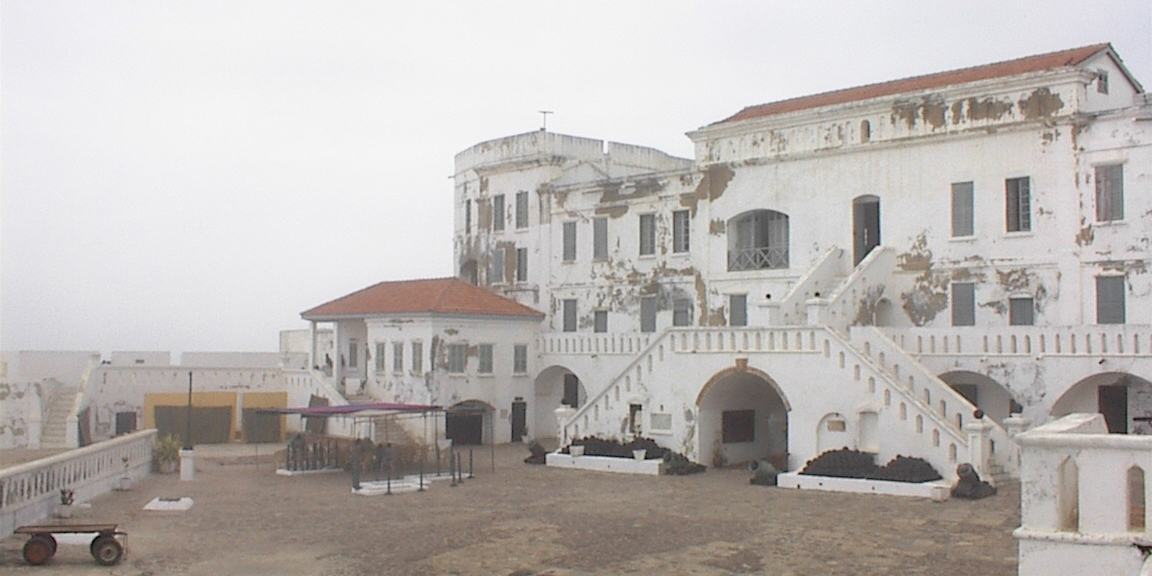Our Digital Communications Officer, Munpreet, does a few things in her spare time, from volunteering at her Gurudwara, to working on both educational books and community-led building sites. Recently, as part of her volunteer work, she travelled to Ghana as part of a delegation launching the Peace Charter for Forgiveness and Reconciliation in Africa. The group she travelled with also visited Cape Coast Castle, near Accra, Ghana. This castle historically held thousands of African men, women, and children in captivity before sending them across the ocean to become slaves in the western world.
As October is Black History Month, Munpreet has shared some of the things she learnt from this visit and how it relates to our approach within the adult social care sector.
What has this visit taught me about forgiveness and care?
When I visited the castle, I didn’t know what to expect. The guide walked us through the dungeons and cellars in which our group of 40 felt confined, uncomfortable and at times scared; only to learn that previously these same walls had been home to over 200 individuals at any one time.
As we were a delegation for peace, we asked the guide how the Ghanaian people have addressed forgiveness for the atrocities that occurred. He responded, “If we do not forgive, we will still be stuck within our own pain and suffering. Forgiveness is the only way we can heal.” He also shared that the local Chiefs of the time had been responsible for some of the harm that was done, as they had willingly handed over their prisoners of war without questioning the circumstances they were going into. As an acknowledgement of this complicit behaviour within the local history, our guide pointed out a plaque which the current Chiefs had placed on the castle walls, pledging to never let such injustices occur again.





How does this apply to the UK today?
During the Coronavirus pandemic, I volunteered at a vaccination centre. I saw many individuals from the African community arrive to be vaccinated, most of whom shared that within their communities there was a fear that the vaccine was designed to harm them.
At the time I couldn’t understand this feeling of persecution and mistrust. However, having visited the castle it is now as clear as day. I understand that there are deep-rooted traumas that have been passed down within these communities that may not be overtly apparent to us. Yet, it is this history that can influence the way in which these same communities engage with larger health and social care services.
It, therefore, becomes the responsibility of those delivering care to ensure they listen attentively, build trust, and create safety and security for those they are supporting.
How can we use this knowledge within IMPACT?
IMPACT is currently conducting a facilitator project on Direct Payments within the BME community. The project came as a result of IMPACT assembly discussions and is based on the recognition that those from BME communities do not access the support that is offered to them. I discussed my trip with the project Facilitator, Marie, to understand how this learning could be applied to the project going forward.
The take-away points from the conversation were:
- We need to take time to understand the personal/familial or community history that might be influencing someone’s behaviour
- We need to make an active effort to build trust with all communities so that they feel valued, heard, and supported.
Within IMPACT we understand that there are many issues that cannot be solved overnight. However, discussions and sharing of knowledge such as this gives us the opportunity to broaden our horizons and become aware of perspectives we may not have previously considered.

